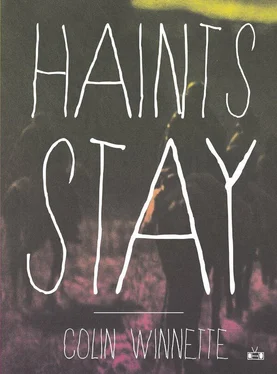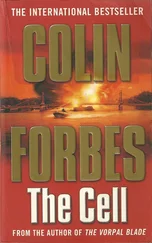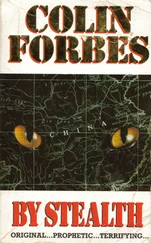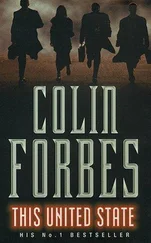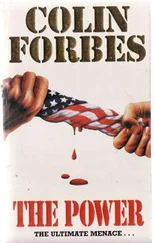Sometimes, in the morning, the clouds would look like a plowed field spread across the sky. The sun would come through them and change them and Bird would watch through the small window by his bed. That time of year, there was frost in its corners each morning, like white fur.
Martha would play them right up to breakfast, songs that paused but seemed to have no end. John cooked and served and the songs went on until the plates were loaded. Then Martha joined them. She was tight-lipped and cinched. She sat up like a board.
“We’ll cut your hair today, Mary,” said Martha, digging into her bacon with a dull knife.
“I like it long,” said Mary.
“If we do not cut it, someone will mistake you for a heathen and take you away during the night.”
“Martha,” said John.
“Martha, none of it,” said Martha. “I’m only saying I’d like to clean my daughter up a bit and keep her nice.”
“I am nice,” said Mary. She was tearing up and not eating her eggs.
“Until you’re taken away and all the decency is riven from you,” said Martha.
Martha’s own hair was spiraled up and held in a bulb at the back of her head. There was no way of knowing precisely how long it was, but Bird was sure it was fairly long, given the thickness of the bulb. She had dark hair you could get lost in. Closer to her head, Mary’s hair was like two blonde hands interlocked at the fingers.
After breakfast, John led Mary out behind the house. He carried a small hatchet. Bird followed a few steps behind. Mary was crying and wiping her tears with the backs of her hands. She did not normally cry and Bird was curious at it. It made her appear much younger and smaller than she truly was.
“It will grow back,” said John, stopping before a stump.
Mary got on her knees and tilted her face away from the stump. She did not speak. John set her braids on the stump and chopped them more than halfway off with the hatchet. It happened in a single chop. Then the whole thing was over.
John gave the hair to Mary and said she could do what she wanted with it. She wanted to bury it. She did not ask Bird to follow her and did not explain what it was she was about to do. But he followed her and saw it all anyway.
She wandered into the dried-up orchard a few hundred feet from their home. She dug a small pit with her fingers and set the braids in there. She pulled leaves from one of the least dead trees and scattered the leaves over the braids coiled together in the hole like a handful of baby snakes. Then she put the dirt back on top and cried a little more and turned to walk home. Bird thought the funeral was nice and felt his appreciation of it as a kind of warmth throughout his entire body.
“Did you know my name is Isabella?” said Mary.
She and Bird were sitting on the lip of the stonewall encircling the family well.
“I thought it was Mary,” he said.
“It’s Isabella,” said Mary. “John named me Mary when he found me.”
“Where did he find you?”
“I can’t remember.”
“How do you know your name was Isabella?”
“ Is Isabella,” she said.
“How do you know your name is Isabella?”
“I remember that part,” she said. “It’s the part I remember.”
“What else do you remember?”
It was mid-morning. The clouds were low and thick. They seemed to be gathering. Bird did not want a storm. He did not like a storm and would grow more and more afraid until it was over. He had not yet shown this family what he looked like fully afraid and he was starting to think that maybe he would like to go a little longer without showing them.
“Not much. I had a mother who was nice, and I liked her, I think. She called me Isabella. We had a blue and white blanket that sometimes held me and sometimes held corn. I remember touching the corn. What do you remember?”
“From when?”
“From before John found you.”
“Nothing, really,” said Bird. “I remember I was dragged behind a wagon or a cart for what felt like forever.”
“John bandaged you and brought you through the night back to our home,” she said. “We were all asleep when you got here and I ran out to greet him and there you were. You were frightful to look at.”
“Yeah.”
“You were screaming and moaning.”
“Yeah.”
“You remember that?”
“I remember John cutting into my shoulder.”
“I did not see that.”
“I could not look away, though he told me to.”
“Then what?”
“Then we woke up and had biscuits.”
“What were your real parents like?”
“I thought it was a dream,” said Bird. “I thought I was going to wake up in the woods again.”
“With that thing?”
“Before that, I guess.”
“Why were you in the woods?”
“Can’t remember.”
“What did your parents do?”
“I don’t know,” said Bird.
“What do you mean?”
Bird was digging at the lichen between the stones, tearing it loose and dropping the small pieces into the mouth of the well.
“I don’t mean anything. They were farmers.”
“It can be hard to remember,” said Mary.
“Yes,” said Bird.

And then there were those men in the woods. But they were wild. Everything they had, they had with them. No one was looking for them. In fact, Brooke got the sense that they’d done some good by taking them down. Certainly, they’d done what was right for themselves. Any court would see the truth in their claims of self-defense.
There was the scarred Southerner. Something wrong with his face that Brooke couldn’t explain. The man had friends. He was well-liked for some reason. Some men just smoothed along throughout life and never really got anyone particularly ruffled in any negative kind of way. Brooke could not remember how they had found themselves at his doorstep. But he had known why they were there. The man had given chase through the living room and out the backdoor in his pajamas. There was a pot of food in the fireplace and a candle burning at the desk. Before setting out after him, Brooke and Sugar had made sure there was nothing much to come home to. They’d done some real damage on the man’s home, and stockpiled his weapons on the backs of their horses.
He missed those horses. They never tired before it was time to settle. They didn’t make many demands at all. They liked an apple each. His own liked corn. They were agreeable, handsome animals. He did not always get as much as he would have liked of agreeable things.
The man was not a good runner. He was not used to moving in shadows or progressing himself with regularity. His camps were easily spotted, easily tracked, quickly abandoned, and easily destroyed. They, technically, had not killed him. They had followed him around until the corpse revealed itself. He was not a hunter. He did not seem to know the ways of tracking water. It had been Sugar’s idea to wait it out and it was a good one. They rode on behind him, kept an eye on him, but did not overtake him. For some time, he had probably assumed he was proceeding well in his evasion. There was some kind of tragedy in that.
When it came to rounding up a hog, Bird was as good a partner as John ever had. The boy was particularly skilled at motivating the pig without startling it. Something in the boy either soothed the creature or hardly registered with it. Either way, it crept along, keeping its distance from the boy but never startling, lashing out, or darting. Bird managed to provoke the pig to the door at the far edge of the pen without ever touching or even reaching out for it. When John’s hands fell upon the creature to pluck it out and hang it, the animal seemed as startled as the day it was born.
Читать дальше
